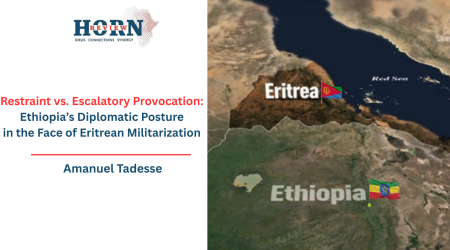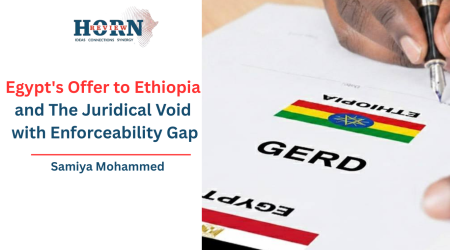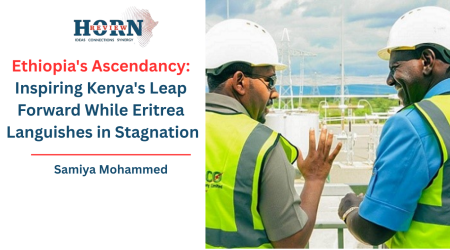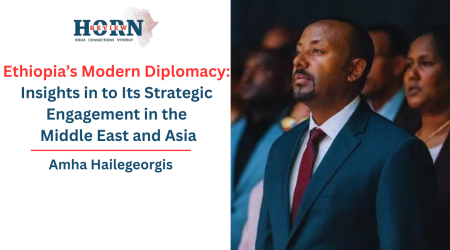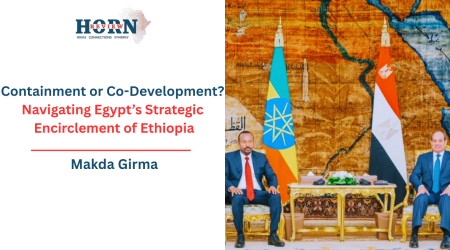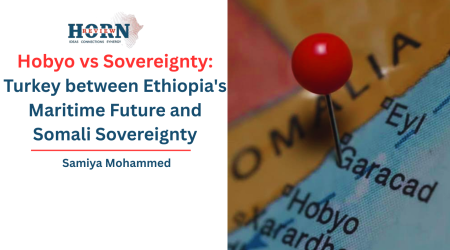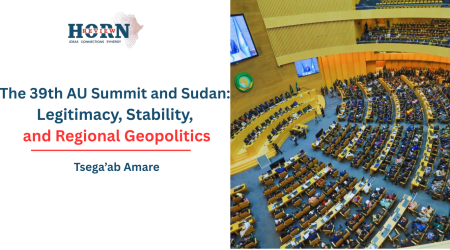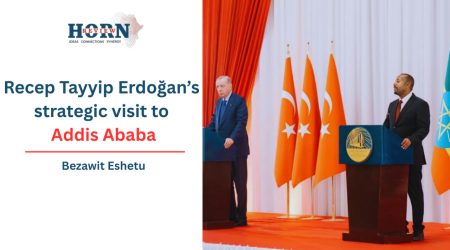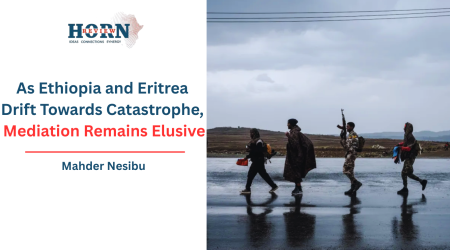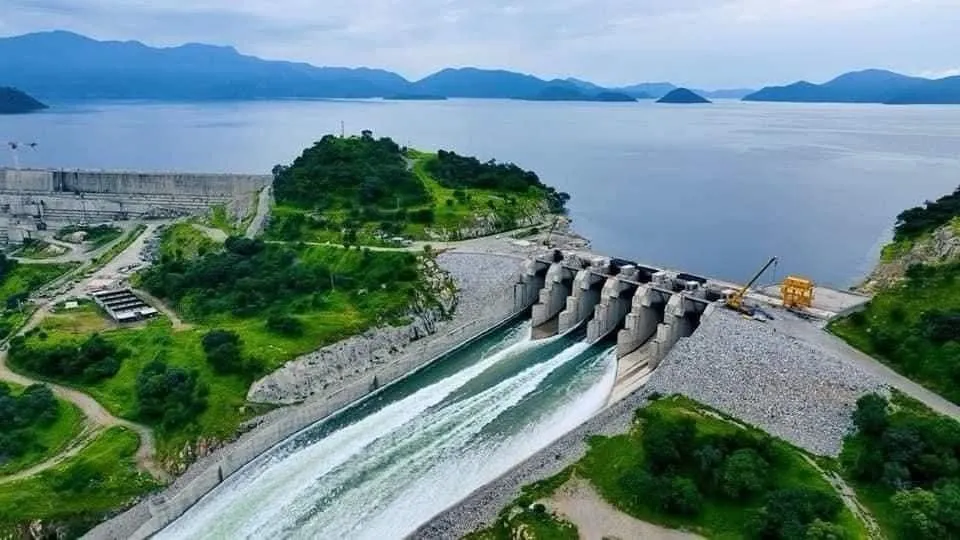
28
Jul
GERD’s Grand Moment: Complete, but is the Region Ready?
After nearly 14 years and approximately $5 billion in investments, Ethiopia has completed the Grand Ethiopian Renaissance Dam (GERD)Africa’s largest hydroelectric project. On July 3rd 2025, Prime Minister Abiy Ahmed announced that the dam is fully constructed and scheduled for an official inauguration in September 2025. He emphasized that GERD is “not a threat, but a shared opportunity” and extended invitations to Egypt, Sudan, and all Nile Basin nations to join Ethiopia in celebrating this historic milestone. But beneath that message lies more than just water, it carries decades of distrust, unresolved disputes, and three countries locked in a delicate triangle of power, survival, and sovereignty.
For a country where more than half the population lacks consistent access to electricity, GERD is more than infrastructure—it’s a promise. It’s a shot at industrialization, regional energy leadership, and a narrative of self-reliance: built without the World Bank, without colonial-era water deals, and without bowing to external pressure. But if GERD is Ethiopia’s promise, it’s also Egypt’s warning flare. Egypt has long viewed the Nile not just as a river, but as its lifeline. Nearly 97% of its freshwater comes from it. Agriculture, food security, urban life—almost everything downstream depends on the water that begins upstream in Ethiopia. So when Ethiopia moved forward with filling GERD’s reservoir—unilaterally and without a binding legal agreement—Egypt read it not as progress, but as provocation.
Then there’s Sudan—caught between the poles of opportunity and risk. For Khartoum, the dam could bring low-cost electricity and help regulate seasonal flooding that has devastated regions in past years. But Sudan also has legitimate concerns: what happens if Ethiopia suddenly releases water without coordination and disrupt water flow? What if there’s a dam failure and it affects irrigation? The country, still navigating internal instability, has oscillated between alignment and apprehension—sometimes joining Egypt’s calls for legal guarantees, other times expressing cautious optimism about the dam’s benefits.
Ethiopia wants to grow—electrically, economically, regionally—and GERD is its flagship for transformation. Thus, it has centered its messaging on sovereignty and equity. Its leaders argue that no country has the right to stop Ethiopians from using a resource that begins in their own mountains. But Ethiopia also wants legitimacy. It wants GERD to be recognized not just as a national project, but as a regional good. Egypt wants security—water security, legal certainty, predictability and above all, power. So its spreading the narrative that it fears a future where it wakes up to drought and finds the flow of the Nile reduced without warning or recourse. Sudan wants stability. It wants energy. But above all, it wants transparency. Without reliable, real-time data and coordinated dam operations, Sudan is left guessing. And when countries are forced to guess about water, history shows that cooperation can turn quickly into conflict.
The effects of GERD’s completion are already rippling across the region. Ethiopia has begun signing power agreements with neighbors like Kenya and Djibouti, and there’s talk of creating a regional power pool. That’s good news for integration—but only if the politics don’t poison the wires. Still, it’s not all brinkmanship. The dam’s filling so far hasn’t significantly hurt downstream flow—partly due to favorable rainfall, partly due to cautious management by Ethiopia. But that’s also the problem: it’s been managed unilaterally. And that makes future behavior unpredictable, making Egypt powerless. As climate patterns become more erratic, trust—already brittle—becomes the most essential resource in the Nile Basin.
Looking ahead, Ethiopia will likely double down on its image as an energy hub. September’s inauguration will be framed as a pan-African success story. The invitation to Egypt and Sudan still stands—but whether they attend will say a lot about the direction of diplomacy in the months to come.
Egypt, meanwhile, is investing in internal resilience—expanding desalination, upgrading irrigation systems, and building pressure on international forums. But these moves, while smart, don’t replace the need for a deal with Ethiopia while time is tightening. Sudan could end up being the unexpected power broker, if it stabilizes politically, it has the geographic and strategic position to facilitate dialogue and help both neighbors move from accusation to negotiation.
Ethiopia has already demonstrated measured commitment by completing GERD without disrupting downstream flow and repeatedly extending diplomatic invitations—a commitment it plans to stick to. Egypt, for its part, should consider energy interdependence as a form of leverage. If it buys power from GERD, it gains not just electricity but influence—becoming a stakeholder in the system rather than a sidelined critic. And Sudan must decide what role it wants to play: passive observer, or active mediator? Its voice could tip the balance if it chooses to engage constructively.
In the end, GERD can either be a turning point or a trigger. It can light homes, power factories, and symbolize a new era of African ownership. Or it can deepen divides and entrench mistrust. Prime Minister Abiy called the dam “a symbol of regional cooperation and mutual benefit”. That’s still possible—but only if the region moves from speeches to structure, from symbolism to systems, and from nationalism to negotiation. The water will keep flowing—politics must too.
By Sina Yigzaw,Researcher,Horn Review
Reference
1,Office of the Prime Minister – Ethiopia, ‘Regarding the Grand Ethiopian Renaissance Dam’ (X, 3 July 2025).
2. Associated Press, ‘Egypt says Ethiopia’s completed power-generating dam lacks a legally binding agreement’ (5 July 2025).
3. Egypt Independent, ‘Ethiopian Prime Minister invites Egypt, Sudan to GERD opening, vows no obstruction will halt it’ (3 July 2025).
4. Al-Monitor, ‘Ethiopia’s mega-dam on the Nile is now complete, PM says’ (4 July 2025).
5. Nile Basin Initiative, ‘Cooperative Framework Agreement’ (NBI 2024).

